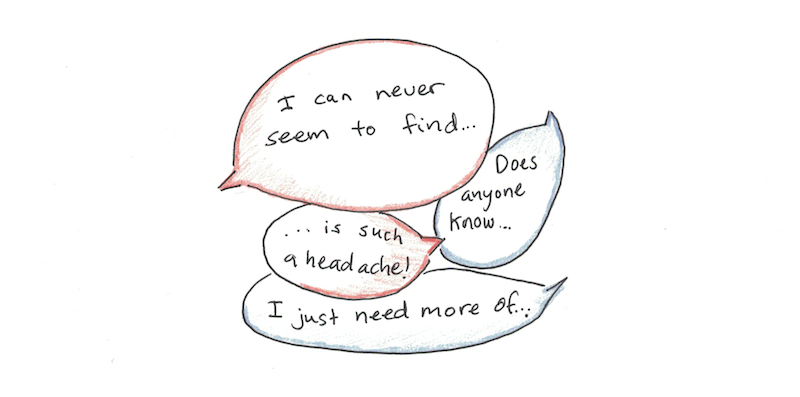In my course I teach with Cal Newport, we encourage students to cultivate rare and valuable skills in order to improve your career.
Among the countless ways you could potentially improve your career, we focus on this approach for a few key reasons.
First, actually increasing the value you provide employers, clients and customers directly impacts your bargaining power. While many other suggestions (networking, resume building, credentials) also matter—they tend to change how you are perceived. Learning rare and valuable skills changes what you are.
Second, the more valuable you are the easier other parts of career development become. If you have a really useful portfolio of skills, networking and office politics becomes a lot easier. We like to associate with top performers, and so those who have rare and valuable skills tend to also have more allies and contacts.
That being said, this often raises a challenging question, which skills should you learn to reach this kind of enviable position?
Figuring Out The Skills You Need
In our course, we cover an in-depth method of interviewing people ahead of you to do this basic kind of research. However, in this article, I’d like to cover a few simpler methods you can use to get a relatively decent answer about which skills you should learn.
Method #1: See What Bosses/Clients Complain About
A good way to assess which skills are both rare and valuable is to
see which problems are not getting solved (even though people struggle
with them) in the actual marketplace.
Talk to employers and clients who work in your career space. Now ask
yourself, which problems do they complain about, but struggle to solve?
If you can answer this, the skills you need to build are the ones which solve those problems.
This resolves two possible failures when trying to identify career
skills to learn. The first is picking skills nobody really wants, or
ones which they aren’t willing to pay for. If people never complain
about something, chances are they don’t really value it fixed all that
much.
The second failure is picking skills which are too competitive.
Again, if people aren’t complaining about a problem, chances are they
have no problem finding people to solve it at a reasonable price,
indicating that the skill of solving that problem may not be all that
rare.
Method #2: Ask What Top Performers Do (That Normal People Can’t)
Pick someone whose career you admire in your field. Now ask yourself
what this person can do, that you cannot. What do you notice?
If you took over the job of the person you admire, what things can
this person do that you don’t know how to do, or you think you wouldn’t
be able to do as well?
Sometimes, this will point to readily available skills you need to
master. Technical skills, social skills, industry experience and
knowledge. Other times it will point towards assets that this person has
built over time that you may need to cultivate—reputation, client
networks, success track records.
Given the things this person seems to possess, you can then start
working backwards and ask yourself what you’d have to learn or cultivate
to match them. What would you need to get a lot better at, to do as
they do?
Method #3: Do a Career Inventory
The final method isn’t to look at employers or top performers, but to examine yourself.
Write down a list of all the things you bring to the table when
seeking a job in your field. This should include the core things you’re
able to do, in terms of work, and also the secondary skills which
support the main ones (people skills, reliability, organization, etc.).
What could you change about yourself to make that portfolio of skills more valuable to a potential employer or client?
Many professions have a common pattern whereby the early part of
career development involves cultivating direct skills (programming
languages, design software, writing talent) and the later stage involves
cultivating supporting skills (leadership, networking, reliability).
This is often because when you start, you are a resource to be managed,
but as your career grows, you spend more of your time managing and
connecting the resources in other people.
Doing a self-assessment can often help you identify gaps in your current
skills which would cause you to be overlooked. You may also notice
areas where you have decent skills, but not high enough to make them a
strong selling point to a potential employer or client.
Now Learn Those Skills!
Once you’ve gone through the above three methods, you’ll find a few skills worth exploring. Now you actually have to go out and learn them.Source of this Article :
Thanks to Mr Scott H. Young for the article who is the author of this article






